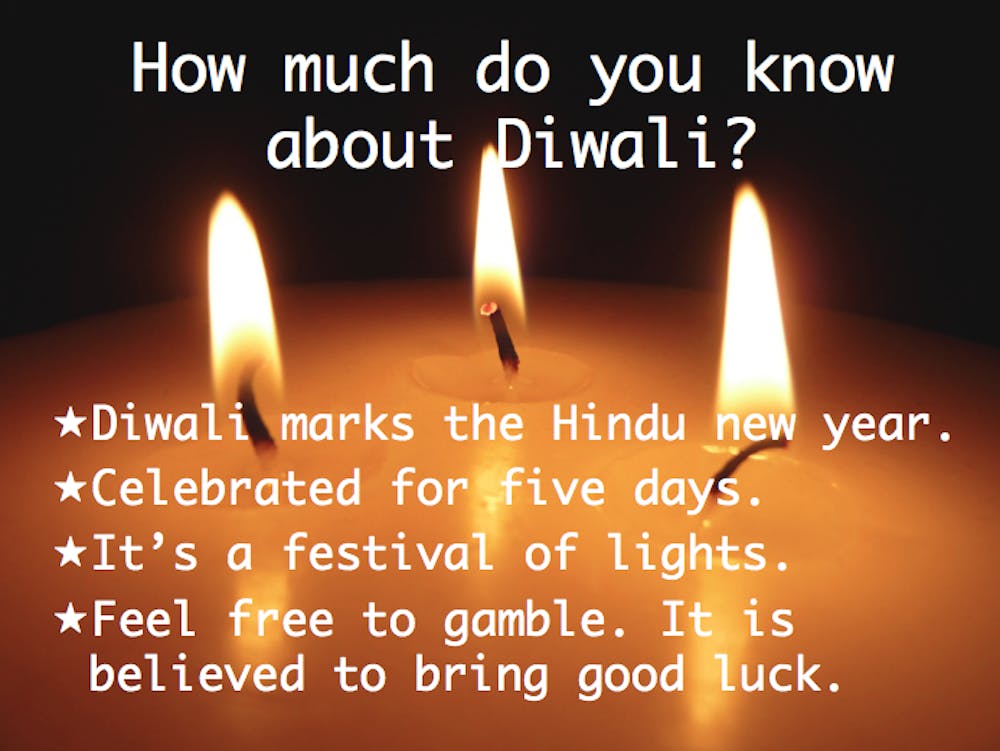Diwali, one of the most celebrated Hindu holidays around the world, will get its recognition at Elon University for the second year in the Numen Lumen Pavilion Nov. 5.
Interns in the Truitt Center for Religious Life and Assistant Chaplain Adam Miller-Stubbendick are putting this holiday celebration, sometimes referred to as the Festival of Lights, together. The event is open to Elon’s campus, no matter if they are a Hindu student or just want to learn more about a culture different from their own.
The interns are still in the planning process, but they already have a good idea of what the celebration will look like.
“We are mirroring it a lot after last year’s celebration,” said junior Danielle Biggs, a Spirituality and the Arts intern. “We’ll have an authentic Hindu prayer led by one of the sophomore students and one the freshmen students who are of Hindu faith and they will teach the audience how to say the prayer.”
The Truitt Center members strive to make the event both culturally informative and fun.
“We will jump into a dance performance from the Naazare dance team from N.C. State and they’re traveling all the way here to perform,” Biggs said. “We’ll have presentations from Elon faculty that are of Hindu faith or that study Indian culture.
Naazare is N.C. State’s Bollywood fusion dance team that combines traditional Indian dance forms with modern, western styles. Opal Patel, a senior student at Elon, dances both for Elon’s Finest team and Naazare.
“The team I'm on, NCSU Nazaare, is a fusion dance team,” Patel, “We do everything like Bollywood dance, Bhangra, Hip Hop and classical Indian dance forms including Kathak and Bharatnatyam. I'm really excited to see people come out to learn and celebrate Diwali, the Truitt Center had some great things planned out for their event as well as some yummy food.”
The three event planners have not yet decided which foods will be offered, but since there is not a main Diwali dish, there will be an assortment of Indian food. They are also still deciding if restaurants will cater or if students can bring in various dishes of their own making to serve. Typically, lots of sweets are eaten over the holiday, including the Indian sweet meat called mithai among other foods.
People can also get Henna tattoos and participate in Rangoli art, which is a traditional Indian folk art that’s made on living room floors as a collaborative effort and incorporates bright colors.
“It’s really just an interactive event where people can actively engage in asking questions and participating with the dance and learning a dance demonstration and learning all about Diwali and the festival of lights,” Biggs said.
More than anything, the purpose of the Diwali celebration is to let students who might normally not know anything about Indian holidays understand its purpose. There will even be luminaries both inside and outside to reinforce Diwali’s main theme: the Festival of Lights.
“The main purpose is to shut out the darkness and bring in the light,” Biggs said.


